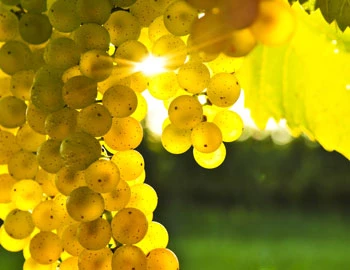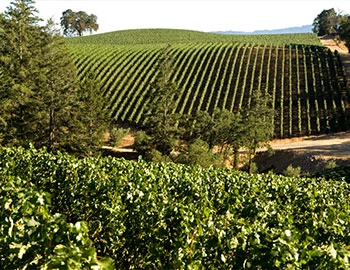
Chardonnay Napa Valley 2022
Napa Valley, Duckhorn Vineyards, 750 ml

| Grape variety: | Chardonnay |
| Producer: | Duckhorn Vineyards |
| Origin: | USA / California / Napa Valley |
Description
In 2012, Duckhorn Vineyards produced their first Chardonnay using grapes from the coolest regions of Napa Valley. In the cellar, classic techniques of French oak barrel fermentation with stirring of the lees are applied, resulting in a Chardonnay that perfectly balances the complexity and richness of the Napa Valley. On the nose alluring aromas of lemon cream, orange blossom, lime and candied pineapple. The palate is juicy, with vibrant flavours of pear, white peach and hints of brioche, leaving a lush and silky mouthfeel on the long and concentrated finish.
Attributes
| Origin: | USA / California / Napa Valley |
| Grape variety: | Chardonnay |
| Ripening potential: | 2 to 7 years |
| Drinking temperature: | 10 to 12 °C |
| Food Pairing: | Hot vegetable curries, Mushroom ragout, Risotto with ceps, Vitello tonnato, White cheese |
| Vinification: | fermentation in wooden barrel, fermentation in steel tank |
| Harvest: | strict selection, hand-picking |
| Maturation: | partly in steel tank, in partly new and used barriques/ Pièces |
| Bottling: | filtration |
| Volume: | 14.0 % |
| Note: | Contains sulphites |
Duckhorn Vineyards
Co-founded by Dan and Margaret Duckhorn in 1976, Duckhorn Vineyards has spent nearly fifty years establishing itself as one of North America’s premier producers of Napa Valley wines.
From its modest first vintage of 800 cases of Cabernet Sauvignon and 800 cases of Merlot in 1978, to its addition of Sauvignon Blanc in 1982, Duckhorn Vineyards has cultivated a tradition of quality and excellence that continues today, making Duckhorn Vineyards one of the most renowned producers of Bordeaux varietal wines.
Fundamental to this tradition was the early decision to focus on the production of premium Merlot. Although many Napa Valley wineries used Merlot as a blending grape in the late 1970s, only a few spotted its potential as a wine in its own right. Dan Duckhorn, a huge fan of Merlot since his travels to Saint-Émilion and Pomerol, felt that this elegant grape variety was underestimated in North America. In the late 1980s, the Duckhorns began acquiring more vineyards in acclaimed areas of the Napa Valley. Today, the Duckhorn Napa Valley Estate Vineyard portfolio comprises of nine unique vineyards, including St. Helena, Yountville, Calistoga and Howell Mountain. Each of them is growing Merlot alongside other grape varieties such as Cabernet Sauvignon, Cabernet Franc, Petit Verdot, Sauvignon Blanc and also Chardonnay, whose different characteristics reflect the variations in soil, terrain, microclimate and exposition. In 2001, the traditionally styled Estate House was built in beautiful St. Helena with stunning views of the surrounding vineyards.

Chardonnay
King or beggar?
Hardly any variety of vine shows such a broad spectrum of quality as the Chardonnay. Its wines range from faceless neutrality to breath-taking class. It is an extremely low-maintenance vine, which explains why it is grown around the world – even in places where it probably should not be. The aromas of the Chardonnay variety are not very pronounced: a bit of green apple, a little hazelnut; in warmer latitudes, also melon and exotic fruits. The wines are often defined by maturing in casks. They develop more or less subtle notes of butter, toasted bread and vanilla. The grapes achieve their highest expression in their region of origin, Burgundy. Its heart beats in the Côte de Beaune: one might think of the plant growth of Meursault or Puligny-Montrachet. With their finesse and complexity, they can survive for decades. Chardonnay also achieves first class in some Blanc-de-Blancs champagnes. It additionally yields great wines in the Burgundian Chablis, and increasingly in Australia and Chile. A simple rule of thumb for pairing with food: When butter and cream are involved, you cannot go wrong with Chardonnay.

USA
USA - Yes, they can!
The United States is the third-largest nation on the planet in terms of both land area (after Russia and Canada) and population (after China and India). Every conceivable climate zone can be found in the US, from hot deserts to arctic frost. Thanks to immigration from all over the world, the US is probably the most multicultural country on the planet. Thus it has the ideal conditions for producing internationally recognized wine.


